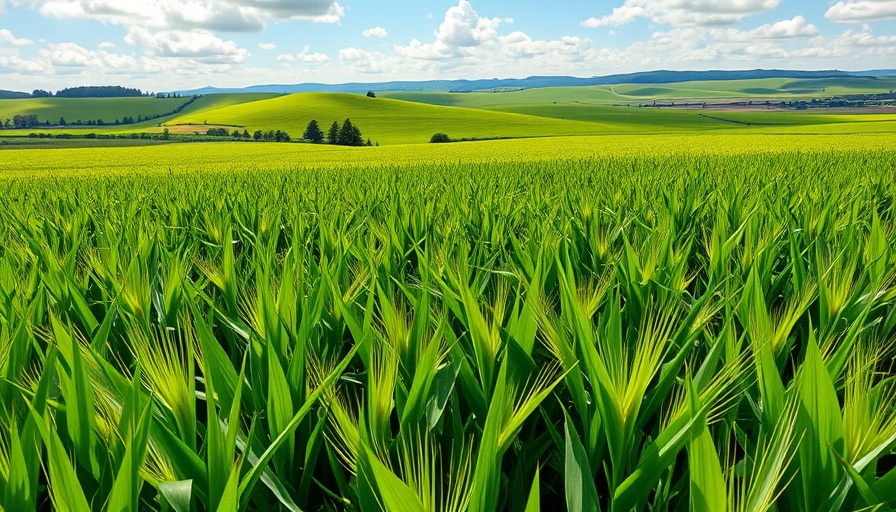
The Hidden Costs of Climate Change on Our Plates
Climate change is often associated with extreme weather events and dwindling crop yields, but its effects run deeper, impacting the very nutritional quality of our food. A recent study presented at the Society for Experimental Biology’s Annual Conference in Antwerp has brought this unsettling truth to light. The research conducted by Jiata Ugwah Ekele and her team highlights how rising temperatures and increased carbon dioxide levels are not just altering the quantity of crops but also diminishing their nutritional value.
Understanding the Study: An Inside Look
Ekele's research focused primarily on leafy greens like spinach, kale, and arugula, which are staples in many diets around the world. By manipulating environmental conditions in lab settings, the team simulated projected climate scenarios typical of the UK. What they found was alarming; while crops in a controlled, warmer environment grew larger, their nutrient density—particularly calcium and antioxidants—was significantly reduced. This leads to a crucial question: as climate change progresses, what is the value of the food we grow?
How Climate Change Alters Nutritional Content
The findings indicate a fascinating yet troubling correlation. While higher carbon levels can increase the sugar content in crops, they simultaneously lead to a decrease in essential nutrients. This dual effect poses serious implications for health. As Ekele notes, "It’s not just about how much food we grow, but also what’s inside that food and how it supports long-term human well-being." These insights emphasize that the challenge ahead is not merely about food production; it extends to the quality of that food, determining its impact on health and nutrition.
Considering Future Food Systems
What does this mean for our future food systems? As global temperatures rise, we may need to rethink the crops we cultivate. The nutritional landscape will likely shift, requiring farmers to adapt to new growing conditions and potentially transition to cultivating different, more resilient varieties. Ekele's research aims to inform policies that not only prioritize quantity but also nutrition, promoting a food system that is sustainable, equitable, and health-oriented.
The Broader Implications for Food Security
The intricate relationship between climate and health underscores the urgency in addressing climate change. Research has previously shown that staple crops like soybeans, rice, and wheat are at risk under various climate scenarios, leading to potential food scarcity. The impending challenges necessitate a comprehensive approach that combines agricultural innovation with nutrition science, ensuring that populations are not just fed but are nourished.
Call to Action: Towards a Sustainable Future
As we continue to grapple with the effects of climate change on food systems, it is imperative to advocate for practices that promote both environmental and human health. From supporting local farmers who prioritize sustainability to engaging in community gardening initiatives, individual actions can contribute significantly. Understanding these issues helps shape our choices—encouraging a food culture that values quality alongside quantity.
 Add Row
Add Row  Add
Add 



 Add Row
Add Row  Add
Add 

Write A Comment